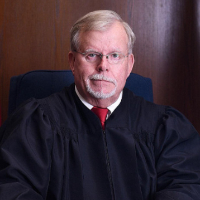Sealevel Juvenile Law Lawyer, North Carolina
Not enough matches for Sealevel Juvenile Law lawyer.
Below are all Sealevel Criminal lawyers.
Peter Mack
✓ VERIFIEDCriminal, Traffic
Peter Mack, Jr. was a district court judge for the 3B Judicial District, serving Carteret, Craven, and Pamlico counties of North Carolina. Mack worked... (more)
Jessie Marie Corwin
✓ VERIFIEDBankruptcy & Debt, Criminal, Family Law, Personal Injury, Traffic
For whatever legal issue or dispute you’re facing, you will need a strong, dependable lawyer by your side to provide the support and guidance you ne... (more)
Philip Joseph Clarke
White Collar Crime, White Collar Crime, Felony, Criminal, Criminal
Status: In Good Standing
Carli Grey Stanley Woolard
Juvenile Law, Traffic, Family Law, Criminal
Status: In Good Standing Licensed: 12 Years



